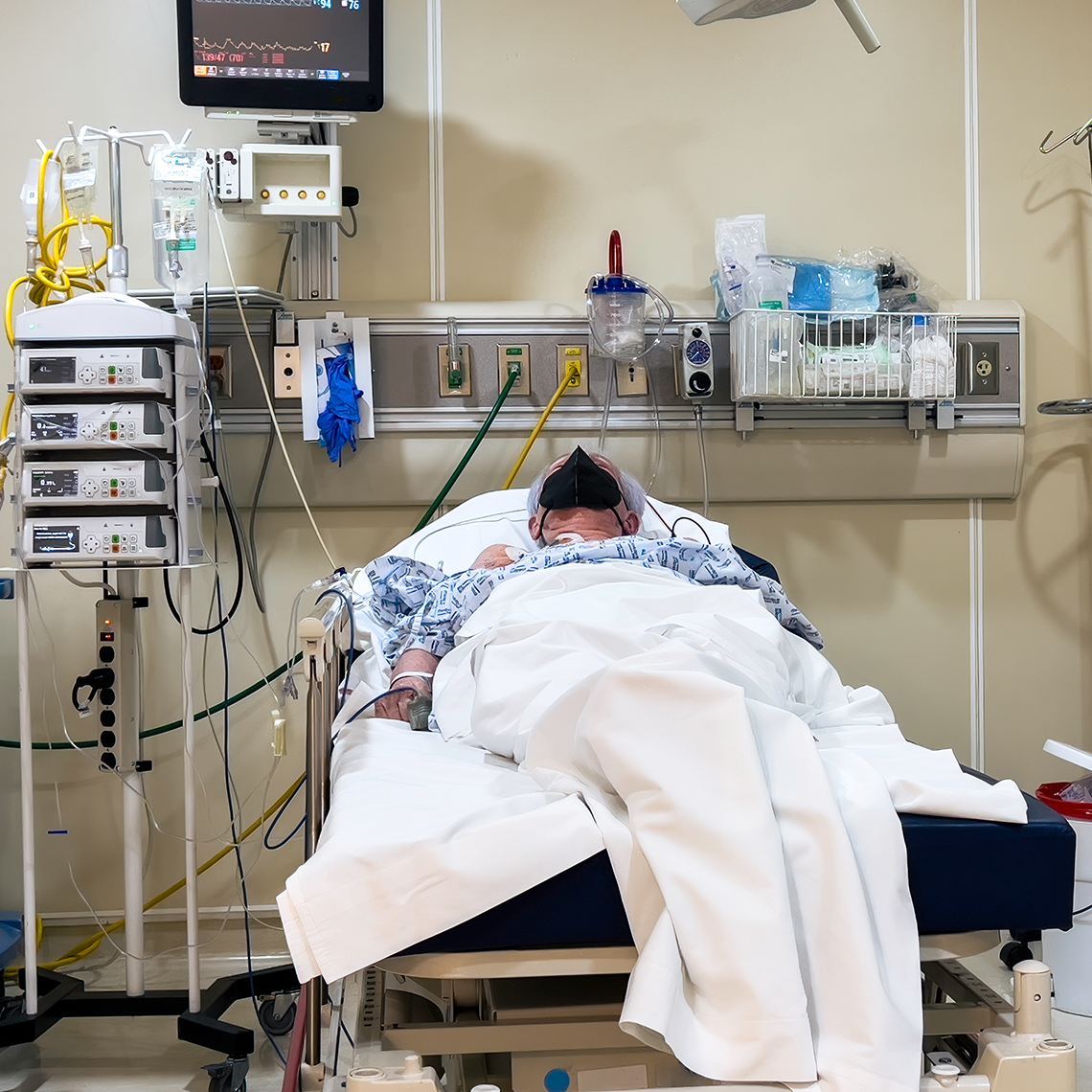Case Study
Attending Needed at Bedside for Emergency Abdominal DX

Description
Two years after gastric bypass surgery, a 41-year-old female presented to the emergency department with a complaint of severe abdominal pain; she was admitted for observation before emergency surgery the following day revealed necrotic small bowel.
Key Lessons
-
The skill and knowledge of an attending surgeon or chief resident at the bedside may be required in some cases of acute abdominal pain.
-
Residents are physicians in training who may not have sufficient knowledge and experience to fully understand a patient's illness, relying on chief residents and attendings to help residents close this knowledge/experience "gap."
-
Patients who experience a delay in diagnosis and a bad outcome may be more likely to blame an attending surgeon who does not become actively involved in the patient's care.
Clinical Sequence
A 41-year-old female presented to the emergency room with severe abdominal pain. She had undergone a Roux-en-y gastric bypass two years previously. At 2 p.m., during an exam by a second-year resident, the patient described her pain 10 on a scale of 1-10, with 10 being the worst, and radiation to the back. She was afebrile and her white blood count was 8.3. At 4 p.m., her pain was still 10/10 and she received Morphine. A nasogastric tube was placed at 4:30 p.m., with little relief. The patient received a second dose of Morphine at 5 p.m.
At 6 p.m., the resident noted that the abdomen was firm and distended with guarding and rebound. A CT abdominal scan was consistent with a partial/early small bowel obstruction and showed a single gallstone. The resident notified the chief resident and the covering attending. They admitted the patient overnight for monitoring with serial abdominal exams. The attending was still in the hospital at this time but did not see the patient before leaving.
At 7:25 and 7:45 that evening, the patient required two additional doses of Morphine. The patient continued "in agony," according to nursing notes. At 11 p.m., her pain was still 10/10, too uncomfortable to be interviewed by the oncoming nurse. She received additional doses of Morphine through the evening.
At midnight, the resident called the attending surgeon at home with concerns about the continued severe pain. The attending asked the resident to call the chief resident on-call to examine the patient and to stop the narcotics. When the attending did not receive a repeat phone call, he assumed that the chief resident did not feel that urgent surgery was needed.
At 1 a.m., the resident spoke with the chief resident, who was not in the hospital. The junior resident relayed her concern about the patient's high level of pain. The chief resident did not come in to examine the patient, apparently attributing the patient's pain to cholecystitis because of the gallstone seen on ultrasound. Throughout the night, the patient's condition did not improve.
By 5:40 a.m., the patient complained of worsening abdominal pain and developed a fever of 102 degrees. The chief resident was notified. At 7 a.m., the attending surgeon examined the patient for the first time, and began emergency surgery at 9 a.m.. The surgeons found an intestinal volvulus in the distal ileum, and removed 75 centimeters of necrotic small bowel.
Allegation
The patient sued the attending surgeon, alleging that negligent delay in recognizing and treating a small bowel obstruction, resulted in an extensive bowel infarction and a larger resection than would have been needed.
Disposition
The case was settled in the high range.
Analysis
Clinical Perspective
-
The patient was admitted to the hospital for observation and serial abdominal examinations without examination by a senior physician.The need for an attending surgeon or chief resident to examine a patient immediately [in the ER or shortly after admission] will vary according to the symptoms and urgency, and may be most effectively outlined in department protocols. Particularly in difficult diagnostic situations, an attending's skill, knowledge and expertise should be available. Early and consistent attending involvement can lead to earlier necessary surgery and a better result.
-
The patient probably did not have infarcted bowel on admission to the hospital, and the loss of bowel could likely have been prevented.
The ideal treatment of a bowel obstruction should prevent the loss of bowel tissue. The refractory nature of a patient's pain indicates that a condition has developed that required urgent surgery. The index of suspicion for a bowel obstruction should take into consideration the patient's past medical history, such as any prior abdominal surgery [e.g. prior gastric bypass surgery], since adhesions can form after surgery and predispose to bowel obstruction. Serial abdominal exams are done to determine if a patient's abdominal process is improving, staying the same or worsening. A worsening exam should prompt expeditious exploration of the abdomen to avoid bowel loss.
Patient Perspective
-
The patient suffered significant and protracted pain in the hospital without ever being examined by an attending surgeon.Patients have a reasonable expectation that an attending surgeon will not only supervise care given to them by residents, but also that the attending will examine the patient directly. If the attending waits to see the patient in person until after a long period of severe pain and the condition evolves into a crisis, the perception can be that something went wrong in the care. In addition, studies of malpractice claims indicate that patients often do not receive adequate information about who is treating them and various roles of providers. They can be left with the impression that no one person is in charge.
Risk Management Perspective
-
The resident had to rely on the decisions of the attending to determine if or when to take the patient to surgery.Residents physicians are early in the process of learning. Although the law holds them to a standard that any reasonable physician in the same specialty would follow regardless of seniority, residents cannot be expected to have the same judgment and skill of the attending. Active involvement in the care of surgical patients by attending surgeons is important in providing optimum care and avoiding unnecessary delays in treatment. Depending on the patient's presentation, this may mean immediate direct examination. Clear protocols for contacting the attending and recommending the attending see the patient can help prevent problems that stem from inappropriate hesitation on the part of the resident. A formal set of triggers [circumstances that require attending contact by the resident] can be created by an institution to provide a framework for the residents. Such triggers can relieve the resident of the burden of making the decision about whether attending contact is needed or not, since contact is mandatory.
Legal Defense Perspective
-
The lack of attending presence and the consequences of that absence likely contributed to the patient's outcome and to the lawsuit that followed, which only named the attending surgeon.It is easier for patients to sue physicians with whom they do not have a relationship. Residents, as fully-licensed physicians, can be liable for a bad outcome based on negligence. However, a resident who initiates timely contact with a supervisor and acts on that supervisor's advice is not usually an attractive target for plaintiffs. When the physician in charge does not appear to the patient or family to be adequately involved in their care, a preventable bad outcome is more likely to result in dissatisfaction aimed at the senior physician. The patient decides whom to sue.
See More MPL Cases
Medication Mix-up Contributes to Patient’s Death


Incidental Does Not Mean Insignificant

When Test Results Go Unspoken

